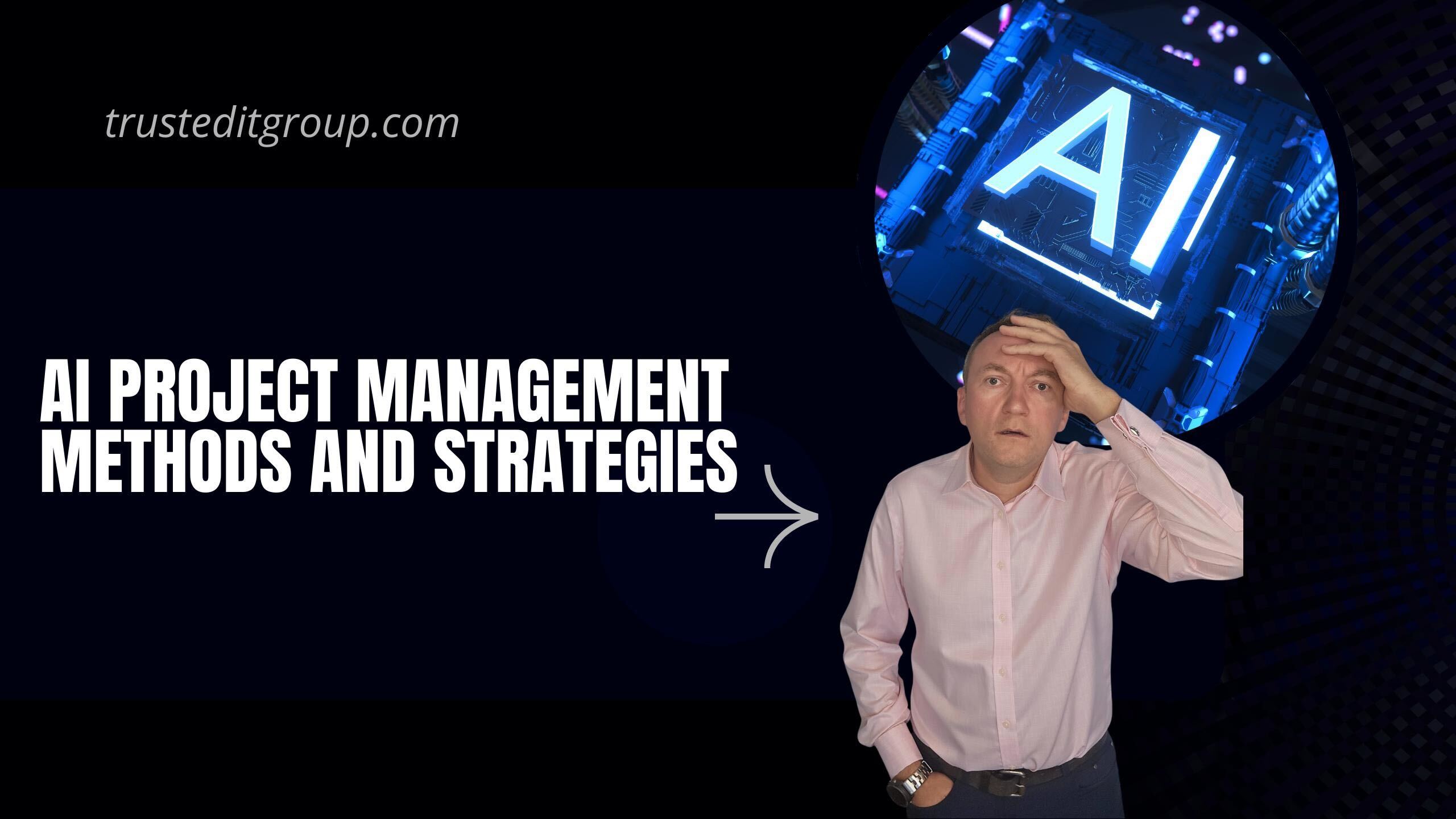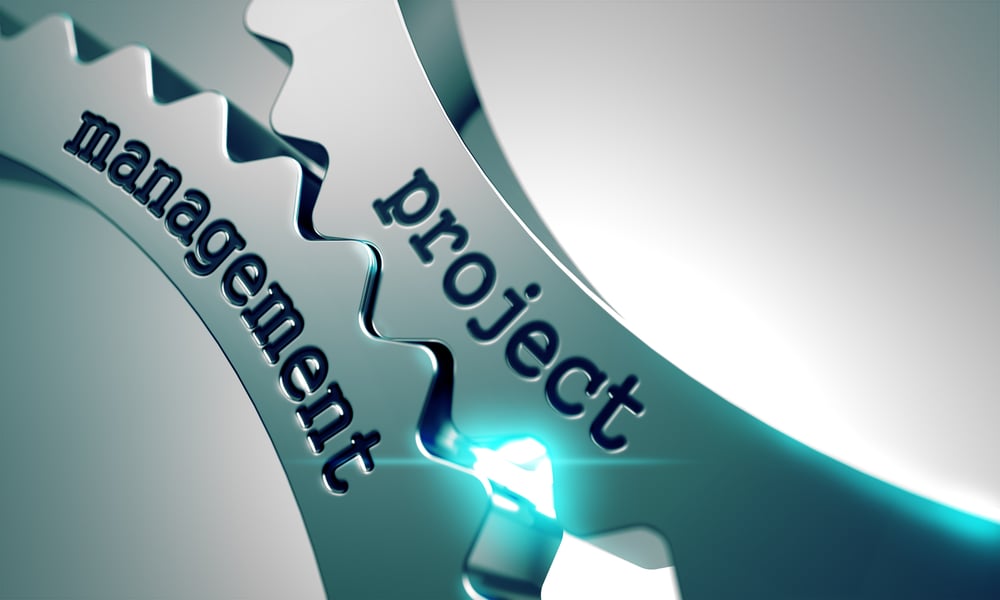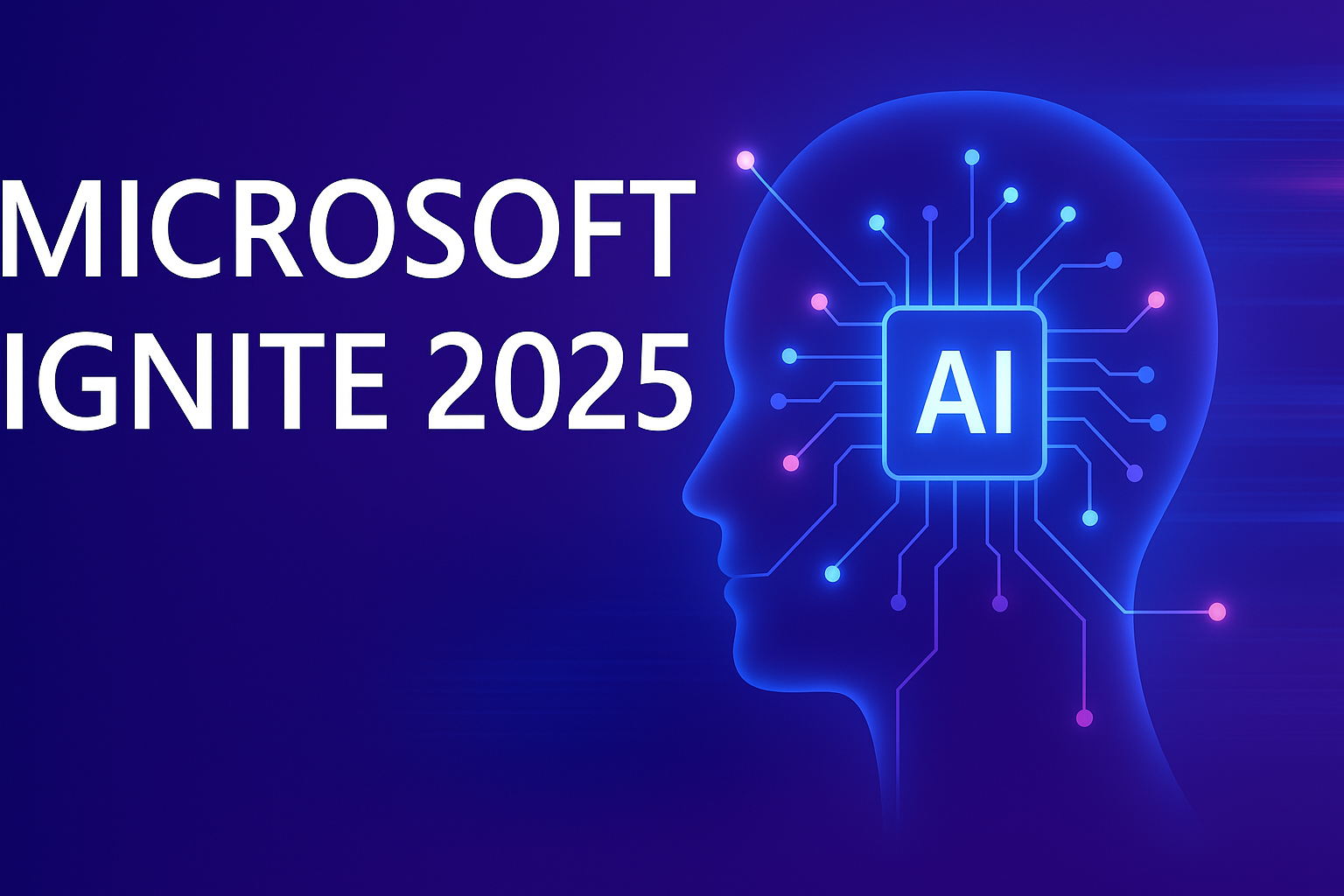AI-Driven Project Management Software: Revolutionize Your Business Operations
QuickSummary / KeyTakeaways
- LeverageautonomousAIagentsforefficiency. Automating project...

Managing projects today is more complex than ever. Teams are distributed, timelines are tighter, and the pressure to deliver measurable results is constant. Success now depends on more than careful planning. It requires the ability to adapt quickly, act on accurate data, and keep every moving part aligned. That’s where AI for project management steps in.
| “Modern AI analyzes performance, anticipates challenges, and fine-tunes resources in real time. It strips away repetitive admin work, surfaces the most relevant insights, and gives project managers the clarity to make faster, better decisions,” said Managing Partner Alex Rodov at Trusted IT Group. |
In this blog post, we go over how AI is transforming project management from the ground up, covering practical applications, the types of AI making the biggest impact, and the benefits of using intelligent, automated tools to run your projects more efficiently.
45% of professionals have started integrating AI into their project management. It works alongside your team, cutting out repetitive tasks, surfacing critical insights, and keeping every initiative moving forward with less effort on your part.
Let’s take a look at what that means.
39% of project managers are planning to deploy AI tools. Instead of spending hours entering tasks, writing descriptions, and assigning responsibilities, AI can handle the heavy lifting. It can create detailed tasks from meeting notes, suggest due dates based on past performance, and even identify the right team members for each role.
With access to historical project data, AI can pinpoint patterns that help you make better calls, whether it’s predicting delivery dates, flagging potential blockers, or adjusting workloads before deadlines slip. These predictive insights help you stay proactive rather than reactive.
AI-powered summarization tools can distill lengthy updates, reports, or meeting discussions into clear, actionable takeaways. That means everyone on your team has the same understanding of goals, timelines, and responsibilities.
Projects evolve. AI tools can monitor progress against goals in real time, adjusting task priorities, reallocating resources, or recommending schedule changes as conditions shift. This level of agility keeps your portfolio aligned with business objectives, even when targets move.
By integrating AI into your project management process, you can accelerate delivery, improve accuracy, and keep your team focused on high-value work while the technology handles the rest.
|
Learn how to drive more effective project management: |
AI comes in different forms, each with capabilities that can transform how you plan, execute, and track projects. Here’s how the main types of AI are already making an impact.
Acting as a supporting AI project manager, machine learning thrives on data. It identifies patterns, builds predictive models, and delivers insights without constant human oversight. In project management, this means less time spent sifting through endless reports and more time acting on clear, data-backed recommendations.
As these models improve, you can expect faster, more accurate decisions that save both time and budget.
Another form of artificial intelligence in project management, decision management systems automate choices by applying predefined rules and logic. When paired with other tools, they can detect triggers, such as delays, missed milestones, or risk indicators, and instantly recommend corrective actions.
The result: fewer bottlenecks, quicker responses, and less manual decision-making pressure on you and your team.
Knowledge-based systems simulate expert reasoning by pulling from an organization’s own data and best practices. They can analyze past communications, risk logs, budgets, and resource allocations to deliver targeted guidance.
With this context, you gain recommendations that reduce errors, improve planning accuracy, and cut down on labor-intensive analysis.
Another form of artificial intelligence for project managers, deep learning uses advanced neural networks to find relationships in complex data. These systems don’t just process information; they continuously refine their accuracy through training.
In project management, they can forecast timelines, predict workload needs, and adjust progress reports in real time. This allows you to stay ahead of potential issues and adapt strategies on the fly.

By combining speed, precision, and adaptability, it’s helping project managers make better decisions and keep initiatives on track.
Forecasting used to be a mix of historical reference points, best guesses, and experience. AI changes that: Predictive analytics now enable project success forecasts with 85% accuracy.
By processing vast amounts of project data, past performance metrics, timelines, budgets, and risk patterns, it creates projections you can rely on. It doesn’t just tell you when a project might be done; it flags potential roadblocks before they appear and adjusts recommendations in real time as conditions shift.
That means you can:
Balancing workloads, skill sets, and deadlines across multiple projects is one of the toughest parts of your role.
AI simplifies it. It analyzes each team member’s expertise, capacity, and performance history, then assigns tasks accordingly. It can detect when workloads are uneven, redistribute assignments, and even anticipate when extra resources will be needed.
This leads to:
Admin-heavy tasks may be necessary, but they can drain hours from your week.
AI automation removes that drag on productivity. It can prioritize deliverables based on urgency and dependencies, update task statuses automatically, send reminders to keep teams on track, and detect workflow bottlenecks the moment they appear. Even better, it can adjust task sequences instantly to keep work flowing smoothly.
Benefits include:
AI takes the complexity out of turning project data into actionable insights. Instead of manually compiling spreadsheets or chasing down updates, you can get accurate, real-time reports at the click of a button.
Interactive dashboards can be customized to show exactly what each audience needs to see, whether that’s executives looking for portfolio-level progress or team leads tracking specific deliverables.
With AI:
Maintaining high standards while meeting deadlines can be a constant balancing act. AI lightens that load by continuously monitoring deliverables against established benchmarks and compliance requirements. It flags issues before they turn into costly rework and ensures every output aligns with industry regulations and organizational standards.
With AI oversight:
These are just a few of the ways how AI will transform project management. Where does this leave you if you don’t know which tools to use?
Which AI Project Management Tools Should You Use?Trusted IT Group’s agentic PMO brings built-in intelligence and automation to your portfolio management, helping you move faster, work smarter, and keep every initiative on track. Backed by our expert consulting and managed services, it’s designed to enhance every stage of your project lifecycle.
|
Experience how Trusted IT Group’s Agentic PMO can accelerate delivery, optimize resources, and improve decision-making across your portfolio.
This isn’t theory. It’s proven, hands-on, and tailored to your environment. Through our 3–5 day Proof-of-Concept “Hackathon”, you’ll see exactly how Agentic PMO works with your data, your processes, and your priorities.
See how AI can transform the way your PMO delivers results.
Book your Proof-of-Concept today.



USA Headquarters:
240 N Washington Bvrd., Suite 303,
Sarasota, FL 34236
Phone: +1 941-584-9323
Email: info@trusteditgroup.com
Portugal Office:
Trusted IT Group
Rua da Cooperativa Agrícola Bloco D, 4A
9050-555, Funchal
Phone: +351 965863641
Email: info@trusteditgroup.com